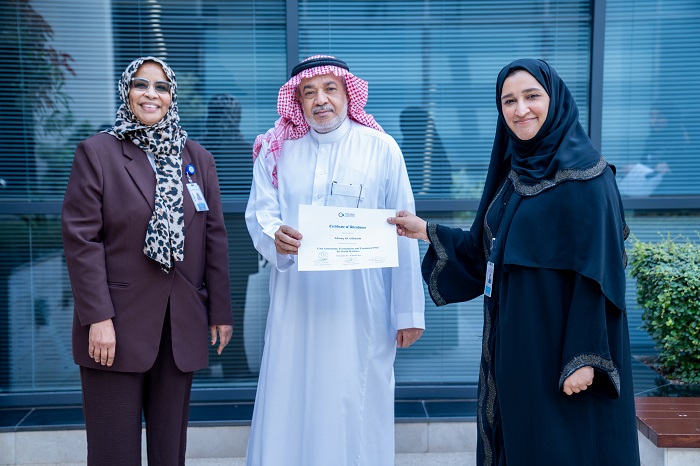
Muscat: The Sultan Qaboos Comprehensive Cancer Care and Research Centre (SQCCCRC) organised a training course to develop the skills of social workers. This comes as part of the SQCCCRC's efforts to empower social workers at clinical level and enrich their knowledge and in the management of cancer patients.
The five-day course included several topics and practical applications in case studies, assessing patient needs, designing treatment plans, and authoring professional reports, in addition to designing a case management model. Professor Muhammad bin Misfer Al Qarni, a specialist in the field of clinical social work, from the Kingdom of Saudi Arabia, conducted the course.
Entesar Mohammed Al Yafai, a social worker, said: “Social workers have a positive impact on raising the quality of social care provided to cancer patients at SQCCCRC. Therefore, the course helps in the development of skills of social workers and improves their capabilities.”
The workshop focused on case management and assessment methodologies, and the mechanism for delivering accurate and effective clinical social interventions to patients. It is worth noting that, coinciding with the beginning of receiving patients at SQCCCRC in 2021, a four-month development programme was organised for social workers. The programme aimed to qualify social workers in the medical field to provide clinical social care for cancer patients, within the integrated care programmes.
Social workers are members of the multidisciplinary team (MDT) that provide comprehensive care for cancer patients at SQCCCRC. They study the patient's social and financial situation, providing MDT members with information and exchanging recommendations to improve the quality of life of patients and remove obstacles that hinder their treatment and life.
The social workers at SQCCCRC help patients and their families to cope with cancer stress and effects on their social relationships, daily routines, and economic affairs. They make efforts to reintegrate survivors into society and provide support and consolation to families of patients in the advanced stages of the disease.